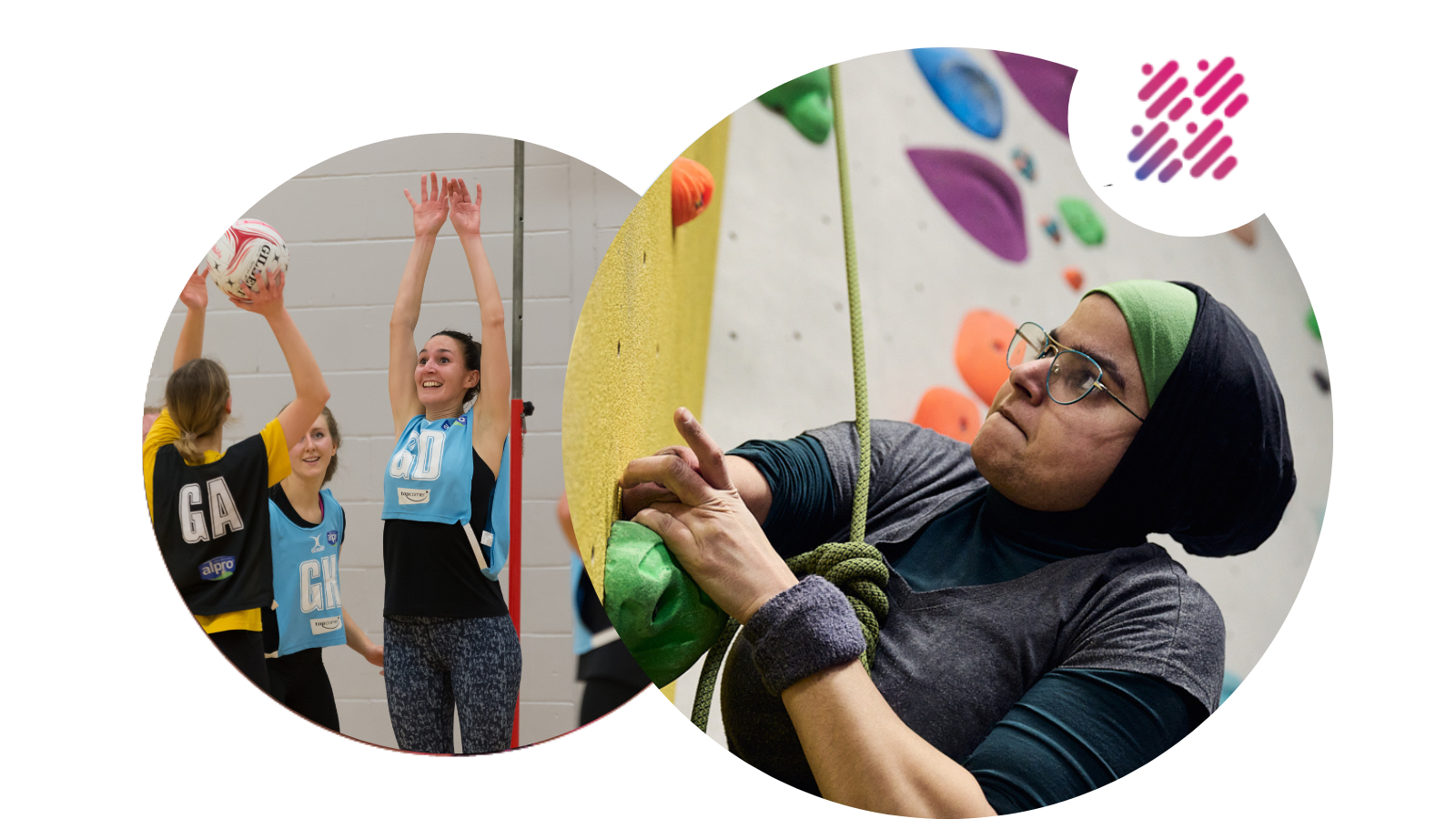ECB's South Asian Cricket Action Plan revealed

Recommended actions include building more than 20 Urban Cricket Centres, 1,000 non-turf pitches and 100 turf pitches by 2024
ECB announced a wide-ranging Action Plan to transform the way it engages with South Asian communities and draw more players, fans and volunteers into every level of the game.
The Action Plan was launched with a series of events in three 'core cities' including a Chance to Shine Street Tape-ball competition at Sparkhill Park in Birmingham, a schools' cricket competition at Bradford Park Avenue Cricket Ground in Yorkshire and a women's and girls' cricketing session at Leyton County Ground Sport Centre in East London.
ECB Chief Executive Officer Tom Harrison said:
"Cricket is a force for good in society and our job is to ensure that it makes a positive impact on as many people's lives as possible. Whilst we've long acknowledged the passion for the game in South Asian communities in the UK and had the best intentions, we have never fully understood how to engage with South Asian communities. This report gives us a road map to change that. How can we ensure the level of South Asian participation in the recreational game, often outside of our own programmes, is reflected throughout cricket? We now have a much deeper understanding of how cricket can play a part in multi-faith, multi-lingual, multi-cultural communities, whether that's creating a match-day experience which respects everyone's customs, renovating derelict council buildings into cricket centres in urban areas or putting the game's talent scouts into more diverse communities. Ultimately, we want more people picking up a bat and ball, the best talent getting opportunities to play at the highest level and attendances which match the UK's passion for cricket. Whilst this Action Plan is about South Asian communities, in developing it we have learnt a great deal about how to reach other communities too. Cricket has a wonderful opportunity to grow and become a sport that is truly diverse and representative of its broad fan base."
Lord Patel of Bradford, the ECB Senior Independent Director, who has driven the development of the Action Plan, said cricket played a major role in his childhood.
As a British Asian who grew up playing cricket in the streets and on the pitches of Bradford in the 1960s, I have first-hand experience of the enormous benefits of our sport. Cricket gave me the confidence, connections and opportunities to meet new people outside my community, as well as develop life-long friendships. The passion South Asian communities in the UK have for cricket remains high but, over 50 years later, there is still so much untapped potential. This plan will help to change that – starting today."
As part of the ECB's ambition to make cricket more representative and reflective of modern communities, a South Asian Advisory Group was put together by Chief Strategy Officer David Mahoney. The group includes experienced individuals from within and outside the game such as Wasim Khan, Isa Guha, Mark Nicholas, Manoj Badale, Ron Kalifa among many others.
The group looked at the challenges facing South Asian communities at every level of the game. Within a wealth of insight, the research revealed that:
- South Asian participation in recreational cricket is at 30%
- The single biggest barrier to South Asian participation is access to facilities in urban areas
- Other challenges identified included; lack of scouting or talent ID in urban areas, the cost of travel and equipment for county age group cricketers, a lack of female coaches, access to cricket at school and a lack of cultural considerations within the match day experience
- 3% of domestic, non-international, ticket sales are from South Asian audiences compared to 40% in the Champions Trophy
- Cricket is overwhelmingly popular with South Asian communities who contribute 18% of the cricketing economy.
To develop the plan, the project team, led by Head of Strategy Vikram Banerjee, conducted the largest ever UK study into cricket in South Asian communities, analysing tens of thousands of survey responses and hundreds of thousands of database records to understand how these diverse groups view cricket.
The plan started by working in collaboration with University College, London to produce an interactive 'heat map' of all South Asians living and playing cricket in England and Wales on a street by street basis (www.southasianheatmap.ecb.co.uk) to fully understand demographics, cultures and preferences.
The team then spoke to more than 600 people in a series of forums across England and Wales in order to get a better understanding of some of the barriers that are preventing more South Asians from participating in organised cricket or engaging more with the governing body.
Those consulted included families, teachers, young people and community leaders.
Using all of this data and insight, ECB worked with Sport England to identify ten 'Core Cities' where the majority (61%) of the South Asian population live: Birmingham, Bradford, Kirklees, Leeds, Leicester, London, Luton, Manchester, Sandwell and Slough.
These ten areas will be the focus of the first two years of the project. Following this initial period, the plan will expand to engage to being to engage with a further 300 districts that make up the remaining 39% of the audience.
ECB also worked closely with key partners including the National Asian Cricket Council, the British Asian Trust, cricket charity Chance to Shine and principal partner NatWest.
These partners will work closely with the ECB to deliver the report's recommendations.
The ECB Action Plan has set out 11 recommended actions which include:
- URBAN CRICKET CENTRES - The creation of 20+ new Urban Cricket Centres and the development of 1,000 non-turf pitches and 100 turf pitches by 2024;
- COMMUNITY TALENT CHAMPIONS - Piloting the implementation of 'Community Talent Champions' to scout talent previously missed by the scouting system;
- PRIMARY SCHOOLS - The delivery of cricket sessions to 6,000 primary schools in deprived urban communities through Chance to Shine by 2019;
- DIVERSITY IN COACHING - The adoption of the 'Rooney Rule' to support the progression of BAME coaches working in the professional game for all future ECB coaching roles; working with the ten 'core cities' to train and develop 200 female coaches;
- BURSARIES - The awarding of bursaries to talented young South Asian players.
Manoj Badale, Chairman of the British Asian Trust said:
This plan represents a real step change from the ECB. They have invested significant time and energy in understanding how to engage with South Asian communities in the right way. The British Asian Trust fully supports this plan and is delighted to be a strategic partner. We are excited about the opportunities this will create for South Asian communities to get involved in all levels of the game."
England international and Worcestershire all-rounder Moeen Ali recalled playing cricket in Birmingham as a child.
Growing up in inner-city Birmingham, I fully understand some of the challenges and barriers for young South Asian cricketers and I see many of those challenges now when I help my Dad coach at his cricket academy. Many parents are still struggling to afford kit for their kids and the new bursaries will give emerging players the opportunity to continue to improve and develop in the game. In the next six months, England's men play against Pakistan, India and Sri Lanka and as well as hoping to play my part on the pitch, I'm looking forward to seeing a new generation of players, fans and coaches coming into the game."
Secretary of State for Digital, Culture, Media and Sport, Matt Hancock MP hoped the plan would boost participation.
We care deeply about driving greater participation in sport. The ECB's exciting plan delivers just that. Cricket is central to so many communities and I look forward to seeing how this new plan not only engages South Asian communities in new and exciting ways but also gets more people playing the wonderful sport of cricket in every corner of the land in the future."
Heather Knight, captain of the England's World Cup-winning women's team, said the sold-out final at Lord's offered a bright future for the sport.
Hearing the noise of the crowd in last summer's ICC Women's World Cup Final against India gave a really great indication of the untapped potential we have in our game. There was real passion and vibrancy and much of it came from people who may not traditionally have come to watch cricket. It's so important that we speak to new audiences and engage new fans especially women and girls and South Asian communities."
For more detailed information and to download the action plan in full, please visit ecb.co.uk/southasiancricket or contact us via SouthAsianCricket@ecb.co.uk.
ENDS
Latest news from Active Black Country
View all news
INSIGHT HUB
Timely data and learnings in relation to physical activity and sport in the Black Country and the added value we can offer.

WATER SAFETY PROGRAMME
Our Black Country Water Safety Programme has had a big impact since launching. Access our free resources for schools, community groups and parents & guardians to increase the number of children and families who are water safe and boost their enjoyment of swimming.













